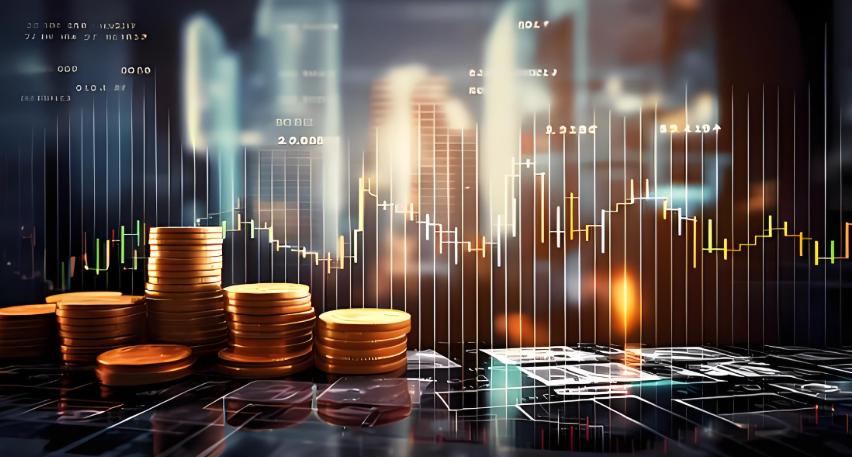Korean Stock Market Rebounds
Advertisements
On a seemingly ordinary Friday, the South Korean stock market experienced an intriguing twist, reflecting a tug-of-war between political uncertainty and market stability. Following a week of drastic fluctuations triggered by President Yoon Suk-yeol's controversial declaration of an emergency measure, the benchmark Kospi index appeared to recover, posting a 0.5% increase. This uptick brought the index's value back to levels seen just before Yoon's midnight announcement, which sent shockwaves through the financial sector, leading to significant declines in stocks, bonds, and the won. Yet, only a few hours later, the president retracted the emergency order, paving the way for the market's stabilization.
The prevailing sentiment among investors, both local and foreign, seems to suggest an increasing optimism regarding the political environment, especially with the impending parliamentary vote on Yoon's impeachment. Analysts speculate that if the impeachment is successful, it might alleviate the political uncertainty that has loomed over the market, and this could be a contributing factor to the recent upward trend in stock prices.
Reports from South Korean media indicate a growing consensus among lawmakers to stabilize the turbulent political situation. Many members of Yoon's ruling party are now expressing their intention to support the impeachment motion, a stark contrast from their previous collective decision to abstain from voting. This change of heart could signify a recognition of the urgent need to restore confidence in both the political realm and financial markets.
Shawn Oh, an equity trader at NH Investment & Securities Co. in Seoul, articulated a perspective that implies a potential immediate positive reaction from the stock market should the impeachment occur. He argues that the removal of Yoon from office would clear the air of uncertainty surrounding his administration. However, he cautioned that while the short-term outlook could appear favorable, the broader political landscape would still impose limitations on the market's growth trajectory in the medium term. It underscores how interconnected politics and finance are in South Korea, reflecting a reality where shifts in governance can lead to rapid fluctuations in investor sentiment.

Despite these recent gains, concerns persist regarding the prospects of an economy heavily dependent on exports. Global economic trends suggest an impending slowdown in many Asian markets, coupled with uncertainties surrounding U.S. trade policies, intensifying worries about South Korea's economic viability. As a nation that exports a substantial portion of its goods to the U.S., a new wave of tariffs could strike a devastating blow to its financial foundations.
The Kosdaq index, which often reflects the performance of smaller-cap stocks, gained 1.5%, indicating a broader recovery across various sectors. However, this resurgence starkly contrasts with the dismal performance of South Korea's stock market over the past year, which has been listed among the worst globally. Key players such as Samsung Electronics have struggled, primarily due to their inability to capitalize on global AI trends, leading to a prolonged period of stagnant stock prices.
The landscape of global finance presents fierce competition, prompting South Korea's regulators to confront the pressing need for improved corporate governance. The persistent issue of the so-called "Korean discount," where stocks are undervalued compared to global peers, has become a priority for regulators. To counter this trend, they are pushing for reforms aimed at enhancing transparency and accountability within corporate frameworks, striving to attract greater foreign investment.
However, efforts to rid the market of this valuation discrepancy face notable challenges. Historical practices of opacity and inadequate disclosure by conglomerates, or chaebols, obstruct progress toward better corporate governance. This long-standing issue has made it difficult to instill confidence in foreign investors, leading them to adopt a cautious stance toward South Korean stocks. As geopolitical dynamics shift and global trade policies tighten, reinforcing investor hesitance becomes more apparent.
As the curtain on Yoon's administration continues to rise amidst political strife, the intertwining of governance and economic performance is under the spotlight. Investors are keeping a watchful eye on legislative votes and the potential fallout. The outcome of the impeachment consideration will not just shape the immediate future of the political landscape but could also profoundly impact South Korea's economic trajectory. The market's recent rebound can be seen as a reflection of hopeful expectations among investors for a more stable governance structure that may lead to enhanced economic conditions.
In essence, the developments in South Korea's political and economic spheres illustrate a complex narrative: one where political decisions continue to directly influence market behavior. A successful impeachment might mark a turning point, providing a clearer path toward eliminating the uncertainties that have plagued South Korean markets. Investors stand poised, ready to respond to shifts in policy and public sentiment, highlighting the delicate balance between stability and volatility in this dynamic environment.
The road ahead is complicated, filled with challenges posed by external pressures and internal governance issues. Yet, within these challenges lie opportunities for reform and recovery, should the political framework embrace a more conducive environment for growth and transparency. In this intricate dance between politics and finance, the outcome remains to be seen, but the implications will undoubtedly resonate beyond the shores of the Korean Peninsula.
Write A Review